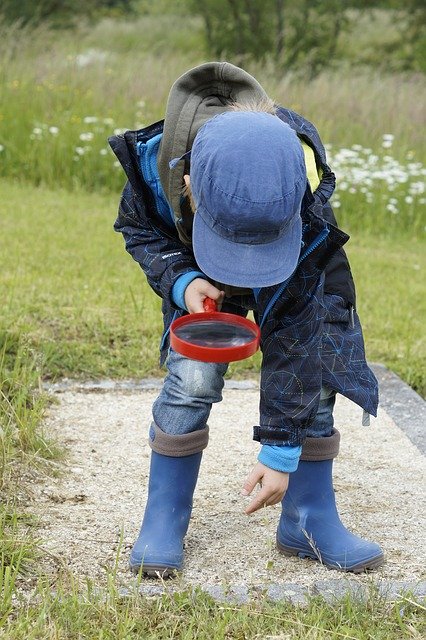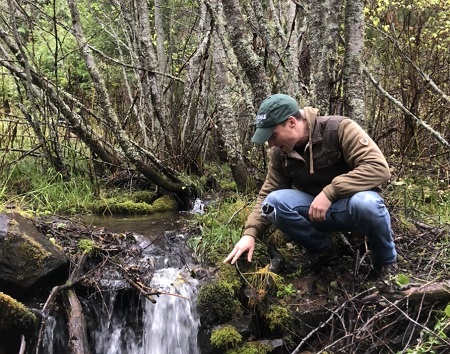
Nature Guys got a wonderful email from Kim who homeschools her children and wanted some advice. Her oldest son is hoping to do something in the field of nature. I also received this email from Charles Van Rees a Conservation Biologist and Naturalist offering to be a guest on the show.
“I want first and foremost to thank you for bringing your expertise, humor, warmth, and energy to a great podcast on natural history. I recently moved from a crowded city in Europe to rural Montana, and have been looking for good podcasts on natural history to keep my mind occupied during frequent, long drives. Your podcast has brought me a lot of joy, laughs, and learning during a tough transition and helped me get back in touch with North American nature. Thank you so much! On my way into work this morning I heard your ‘Welcome 2020’ podcast and your mention of wanting to feature more ‘humans’ on the show. In case you were looking for additional humans, I wanted to offer myself as a potential guest, since I absolutely adore the show and would love to give something in return. I’m a wetland ecologist and conservation biologist with expertise in freshwater biodiversity and ornithology, and currently work as a postdoctoral research scientist at Flathead Lake Biological Station in Polson, Montana. My past work has been on endangered water birds in Hawaii and migratory gulls in Seville, Spain. Aside from that, I’m a passionate student of natural history and have been trying to spend more time integrating nature study into my work as my career advances. I’ve been featured on a couple podcasts before and think it’s tremendous fun. If you’d like to learn more about me I’d be happy to chat anytime, or you can have a look at my website.”
I decided it would be a good idea to have Charles answer Kim’s email. What started as an email exchange evolved into doing a complete episode. If you know people who are interested in the natural world as a career please share this episode with them.
You can contact Charles and learn more about his activities via Charles Van Rees website or Twitter @Gulothoughts.
Special thanks to Cinfed Credit Union for sponsoring this episode.


Bob – what a GREAT episode with, hopefully, a new regular Nature Guy!
You know Bill must be so happy to hear the podcast continuing in your good hands.
Charles sounds, heaven-sent. Hmmmm – a sign from Bill?
Some day Nature Guys is going to go national and we can all say we knew-you-when!
Awe you are so nice! Due to the power of podcasting we can reach anyone in the world with an internet connection. Word of mouth is slow but sure. Thanks for helping us spread the word!
Fantastic episode! I’m always so excited when I hear of young ones interested in becoming naturalists. As an amateur naturalist and someone who works in the early childhood environmental education field, I have two pieces of advice to share:
First, the very best thing you can do is just get outside. Get some field guides and explore! Listen, look, and feel your surroundings. Get familiar with the local flora and fauna in your area. Most naturalists who are now experts in their field will tell you they spent hours outside exploring and reading field guides.
Second, get connected with other like minded individuals in your area. Find a club, or make one. Attend online webinars. Find out if there is a Master Naturalist group through your local Extension office. You’ll learn so much from peers and other amateur naturalists.
Rosanna thanks for adding your 2 pieces of advice! They are both excellent suggestions. It is always wonderful to hear from someone who works with children.
For kids who want to become a wildlife biologist, I would encourage their parents/carers to get them 4 things,
1) a pair of inexpensive binoculars,
2) a digital camera (don’t waste $ on film)
3) a note book (see below) and
4) a library card.
[Field guides to everything are available at local libraries ( biggest free book shops around) or online].
Then the precious gifts are is the 5th and 6th things- encouragement and time (to roam , to explore and to think).
Take kids on walks – try fror every weekend or after school one a week. It doesn’t have to be far but explore your local parks, nature preves and woods. Get them outside as much as possible, encourage them to take photos of flowers, plants, snails, butterflies and other insects, mushrooms, leaves, rocks, lichens. Many places you can also use a net to catch then release small fish or insects so you can draw or photograph them, or pick a wildflower and press it dry to make their own herbarium collection. This will help them figure out what they are seeing. Curiosity grows, just being out side, looking, listening – identifying what’s around them is a big first step to understanding the natural world. Importantly- write it down. Naturalists record where they went, at what time of day, the date, the season, the weather that day, and they make lists! Lists of which plants were in flower, what was in fruit or in seed, which insects, mammals and birds did they see and what did they hear, and what is no longer around to be seen or heard. Write notes. Smart phones and apps are also super useful and encourage citizen science. You actually don’t have to know what kind of insect you saw or what kind of plant it was on, but field guide will help or an app like iNaturalist will both record your observation and help Identify the creatures and plants too.
Get the m to a library so they can spend time looking up those images, pics and notes in the various field guides and reference books. Also there are simple things you can do in your own back yard, even in a city or urban location to encourage those budding biologists- like putting up a bird bath (water is cheap), a bird feeder, or a bird house – even if you only attract pigeons or sparrows- they are animals too and have fascinating biology and behavior. Or you can plant some wildflowers for butterflies and bees- like, daisies, sunflowers, coneflowers, milk weed- and just wait as nature will come to you.
Wow! Thanks so much for taking the time to provide some great information for kids who are interested in a career as a wildlife biologist. This is also great advice for anyone interested in learning more about the natural world.